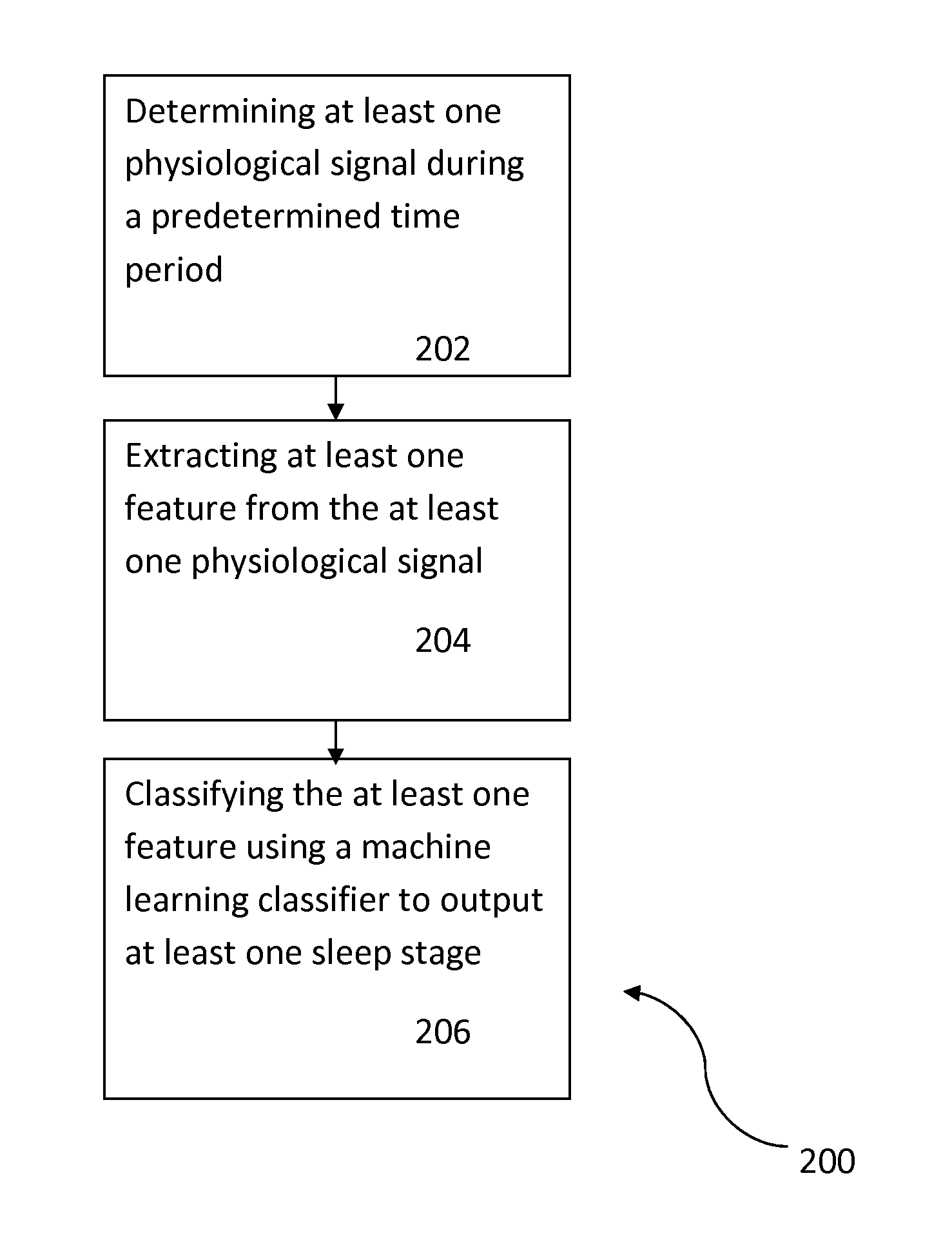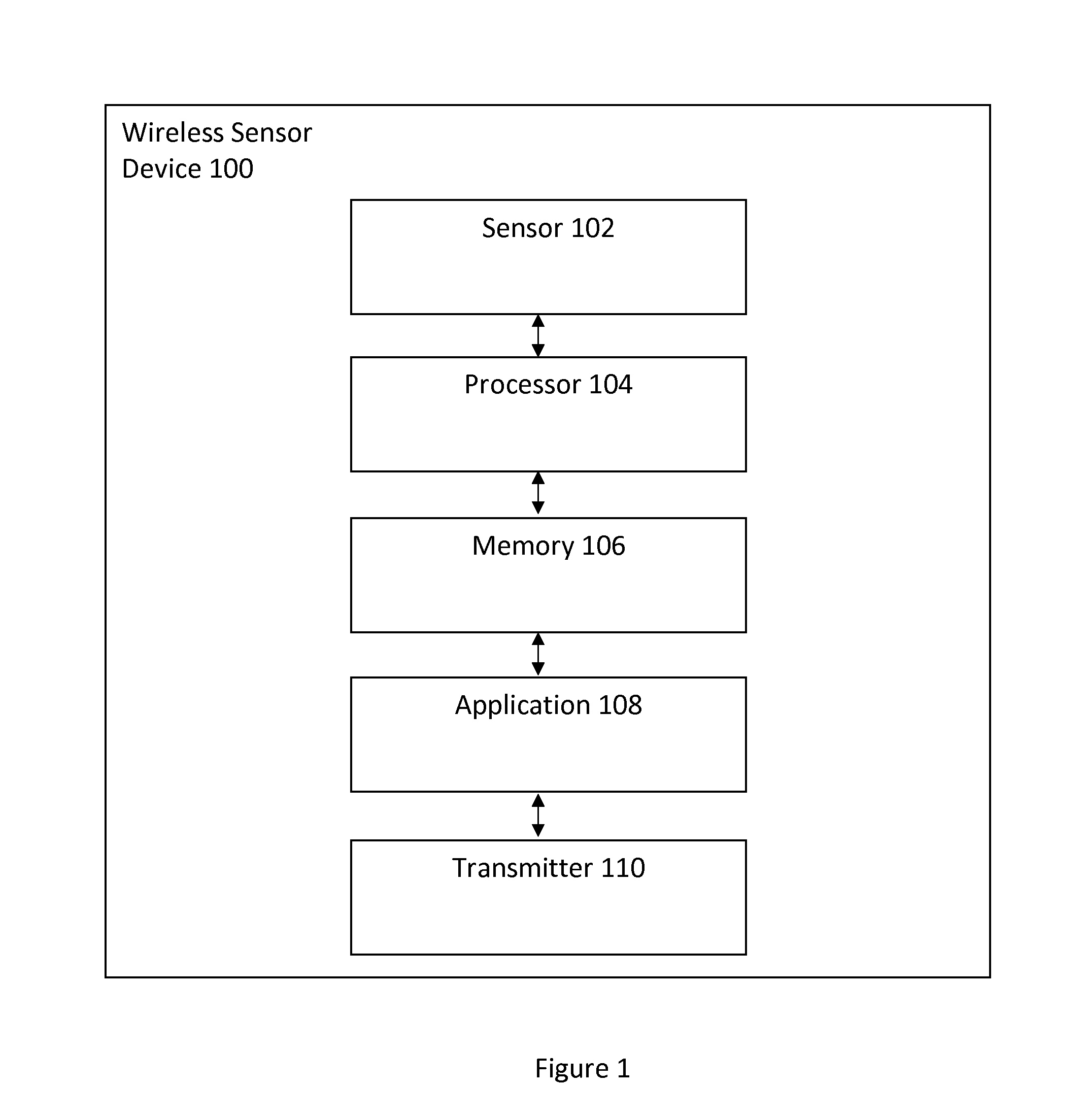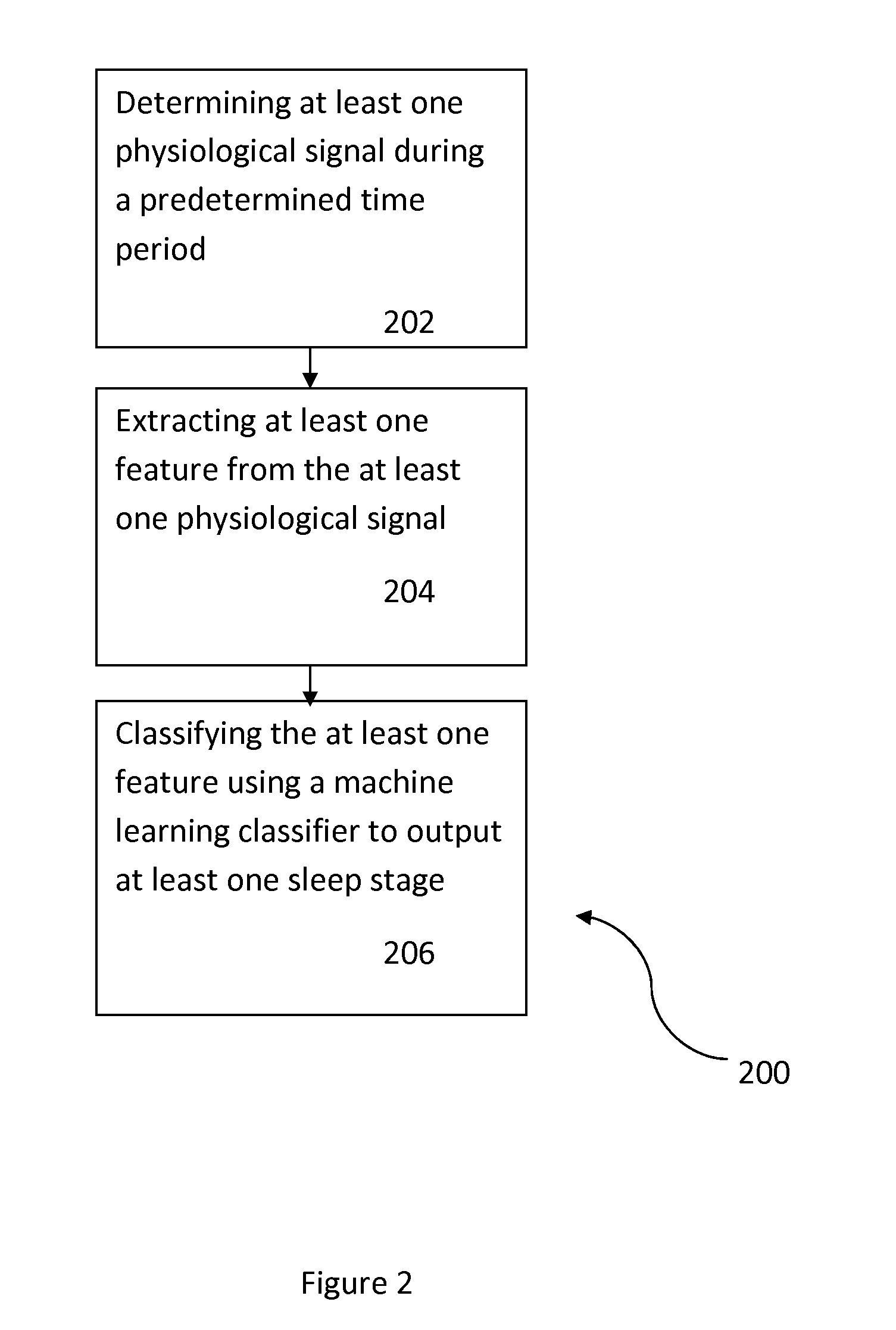Automated sleep staging using wearable sensors
a wearable sensor and automatic technology, applied in the field of wireless sensor devices, can solve the problems of preventing the collection of representative sleep samples, interfering with the person's sleep, and psg study which can often take several hours, and is highly subjectiv
- Summary
- Abstract
- Description
- Claims
- Application Information
AI Technical Summary
Benefits of technology
Problems solved by technology
Method used
Image
Examples
Embodiment Construction
[0012]The present invention relates to wireless sensor devices, and more particularly, to automated sleep staging using the wireless sensor devices. The following description is presented to enable one of ordinary skill in the art to make and use the invention and is provided in the context of a patent application and its requirements. Various modifications to the preferred embodiment and the generic principles and features described herein will be readily apparent to those skilled in the art. Thus, the present invention is not intended to be limited to the embodiments shown but is to be accorded the widest scope consistent with the principles and features described herein.
[0013]The stages of sleep are typically defined by brain signals derived from an electroencephalography (EEG) study. However, cardiorespiratory and other physiological measures also change across the different stages of sleep: heart rate variability (HRV) can increase with deeper sleep; respiratory variability can...
PUM
 Login to View More
Login to View More Abstract
Description
Claims
Application Information
 Login to View More
Login to View More - R&D
- Intellectual Property
- Life Sciences
- Materials
- Tech Scout
- Unparalleled Data Quality
- Higher Quality Content
- 60% Fewer Hallucinations
Browse by: Latest US Patents, China's latest patents, Technical Efficacy Thesaurus, Application Domain, Technology Topic, Popular Technical Reports.
© 2025 PatSnap. All rights reserved.Legal|Privacy policy|Modern Slavery Act Transparency Statement|Sitemap|About US| Contact US: help@patsnap.com



